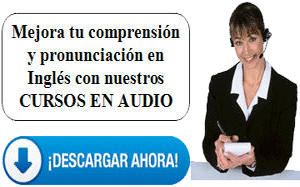|
Improve Your Reading Through Context Clues
When you are reading something in English and you see a word or words
you do not know, what do you do? Do you pause and look up the
definitions? Or do you put down the reading and find something different
to read?
Neither solution is ideal.
Unless you are reading at a level that is clearly too high for you,
avoiding reading may leave you feeling defeated. And pausing to look up
every word can slow down your reading.
There is a better solution: using context clues.
A context clue is a piece of information that appears near an unknown
word or phrase and makes its meaning clearer. Context clues are right
there in the text. But sometimes we don’t see them.
Reading is one of the best ways to improve your English. So in this
week’s Education Tips, we will talk about four kinds of context clues
that can help you become a better reader.
Tip #1: Synonyms
The first kind is synonyms.
As you come across unknown words while reading, look for synonyms. A
synonym is a word or phrase that has a similar meaning to the unknown
word.
Read and listen to this short passage from a Learning English story in
2015 and consider what “fundraiser” means:
Japanese food and music were also served to the 100 or so people who
attended the event. This was the third year the fundraiser was held.
Money raised from ticket sales – each ticket cost $100 to $150 –
supports the National Cherry Blossom Festival.
Looking at the first sentence, you see an event is being discussed. In
the second, the writer replaces the word “event” with the word “fundraiser.”
When one word replaces another in a text, often it is a synonym. So, you
might suppose that a fundraiser is some kind of event.
The third and fourth sentences say more about the kind of event: it has
music and food and is raising money for a festival through ticket sales.
And that’s often what happens at a fundraiser, which is a ticketed
social event that raises money for a cause.
Tip #2: Antonyms
The second kind of clue is antonyms.
Antonyms are words that mean the opposite of a word.
One way to identify an antonym is to look for contrast words, such as
“but,” “however,” “though,” “although,” “unlike,” “whereas” and
“despite.” These words signal that some opposite idea or meaning is
coming.
Let’s look at this sentence from a recent Learning English story. See if
the contrast word “although” helps you understand what a “critic” is.
The United States will begin restricting visas to citizens from six
other countries on February 21, although critics question the move.
The first part of the sentence states a policy change on visas. In the
second part, the word “although” signals that contrasting information is
coming, which is that critics are questioning the new policy. From this,
we might guess that a critic is a person who disapproves of something.
Tip #3: Appositives
The third kind of clue is appositives.
An appositive is a noun or noun phrase that comes after another noun,
where the second defines the first. That definition will make more sense
after looking at the example below. It uses an appositive to explain the
meaning of the word “constellation.” Here it is:
Constellations, or groups of stars that form shapes in the sky, usually
represent a mythological person or creature or a nonliving object.
The sentence uses a comma followed by the word “or” to introduce the
appositive “groups of stars that form shapes in the sky.” Punctuation is
important here: Appositives usually have a comma before and after them.
But note that sometimes appositives do not use the signal word “or.” And
be careful -- commas have many purposes in written texts and they do not
always signal appositives.
Tip #4: Examples
The fourth kind of clue is examples.
Examples can help explain the meaning of a word or idea. In English, the
most common ways we introduce examples are with the phrases “for
example,” “for instance,” “such as” and “like.”
Here is a passage from a 2019 Learning English report about superbugs in
the United States. See if the example helps you understand the meaning
of “superbug.”
Superbugs are appearing much more often outside of hospitals, the CDC
report said. For example, urinary tract infections have been easily
treated in doctor’s offices with common antibiotic medicines. But now it
is more common to see healthy young women with such infections admitted
to hospitals after their treatments do not work, said Doctor Bradley
Frazee.
So what might a “superbug” be? The example provided is of an infection
that is not easily treated with antibiotics anymore. And that is exactly
what a superbug is.
Some closing thoughts
And now for some closing thoughts.
Learning to use context clues can take time. Don’t pressure yourself to
be great at the skill too quickly.
Also, it is often not necessary to know the meaning of every word to
understand what you are reading. So the next time you come across a word
you don’t know, ask yourself whether you can understand the sentence
without it. |
![]() ).
Utiliza el botón derecho del ratón y "guardar enlace" para descargar el
fichero a tu PC, tablet, Smartphone, etc.
).
Utiliza el botón derecho del ratón y "guardar enlace" para descargar el
fichero a tu PC, tablet, Smartphone, etc.![]() Escucha el audio
Escucha el audio



